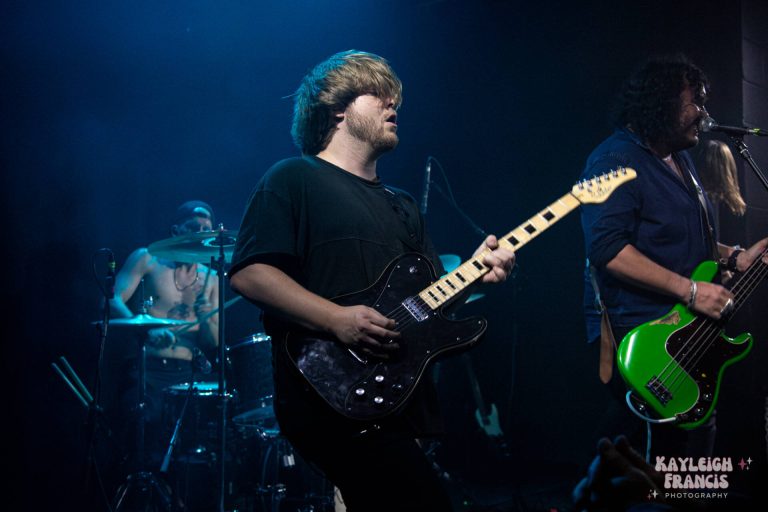The Dominican producer mediopicky often comes up with songs so wildly experimental, they can feel like they’re being piped in from the future. That’s the case on his latest album el precio de la yuca, an album structured like a radio show taking place 80 years from now, capturing sounds ahead of their time. The format lets mediopicky — whose real name is Pablo Alcántara — roll out all his thoughts and anxieties about the present day, but more importantly, it’s a showcase of the audacious, almost unhinged ideas that have made him one of the most exciting upcoming producers in Latin music.
What exactly do those ideas sound like? They’re all over “Negro Frutal,” a hypersonic merengue track with a galloping rhythm that eventually slams into distorted, metal-influenced production. There’s the insanely catchy simplicity of “ya ya yo no no,” a skittering, R&B-tinged goodbye to an old relationship, delivered with the apathy of someone who truly doesn’t care if you live or die. And it’s hard not to keep revisiting the title track, which blends a seesawing cumbia beat with fuzzed-out guitars inspired by System of a Down. (“I want ‘Chop Suey’ to play at my funeral,” Alcántara laughs. “System of a Down, Slipknot, Pain, those were some of the first bands I got into.”)
The unexpected juxtapositions are what make the album so thrilling. “This album was really complicated, but in the end, it was like putting a really fun Frankenstein monster together,” Alcántara says. The producer/singer/writer, who started out as a DJ in Santo Domingo, has been releasing music since 2015, standing out in the Dominican Republic’s small yet mighty alternative scene. el precio de la yuca is among his strongest efforts yet.
But although the music is a completely welcome change from the never-ending onslaught of overly commercial Latin releases, Alcántara admits it was hard actually putting el precio de la yuca out. “This album has been ready for months, and it was going to be totally different,” he says. Originally, he took the songs to several major labels and pitched a less conceptual version of the record. “The album is so complex, though, and that made it hard,” he explains. Rather than dilute the music, he went harder and pushed farther into his more eccentric tendencies, both sonically and conceptually.
He’d been inspired by a conversation he had with his manager about Dominican current events. “We were talking about random stuff from the news, and he said, ‘Yeah, but what does that have to do with the price of yucca?’ Meaning, ‘How does this affect a bigger picture?’ And it made my head explode.” Alcántara was trying to figure out how to incorporate headier content into such a contemporary album, which is how he came up with the idea of turning it a radio show. It’s led by two made-up hosts named Hickory and Malory, who have recently rediscovered the album.
Through the hosts’ banter, Alcántara pokes fun at some of the seriousness of the LP. In one interlude, Malory and Hickory describe the meaning of the album in dispassionate, AI-generated voices: “This talks about how prices go up and never come down, and how governments promise to lower them but never deliver. Mediopicky describes this frustration perfectly.” Alcántara says that though the messages are satirical and somewhat playful, they get into a deeper sense of unease about the future and the music industry. He wanted to use AI voices, for example, to hint at some of the angst surrounding its evolution, and to show how far it’s actually come already.
It might seem like Alcántara has a bigger plan or philosophy behind the music he’s making — his projects often comes with a touch of provocation. Last year, he dropped a song called “R0s4L14 no se invento ese sonidito,” which translates to “Rosalia didn’t invent this little sound.” He laughs about it now, saying he just wanted to remind artists that sounds and genres have a history, and no one owns or invented a particular style. But his approach isn’t really pre-meditated; he describes chasing his inspirations down like someone catching butterflies in a net. He also says he thinks a lot about where music is heading. “I’m always imagining what music is going to sound like in the future, and it inspires all these fascinations for me,” he says.
Alcántara says he has a million more ideas bouncing around in his head. He already has his next album ready, and he describes it as more club-oriented. One thing has been motivating him more than ever: His daughter, who was born this year. “Having her is like gasoline. Before that, I was like, ‘Tranki, I’ll make songs whenever, it’s chill.’ But the feeling I have with this kid is like, ‘Okay, let’s do this!’ It’s completely new energy.”




Leave a Comment